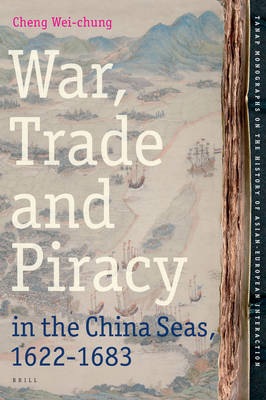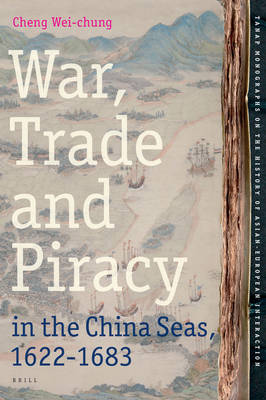
- Afhalen na 1 uur in een winkel met voorraad
- Gratis thuislevering in België vanaf € 30
- Ruim aanbod met 7 miljoen producten
- Afhalen na 1 uur in een winkel met voorraad
- Gratis thuislevering in België vanaf € 30
- Ruim aanbod met 7 miljoen producten
Zoeken
Omschrijving
Approaching its demise, the Ming imperial administration enlisted members of the Cheng family as mercenaries to help in the defense of the coastal waters of Fukien. Under the leadership of Cheng Chih-lung, also known as Nicolas Iquan, and with the help of the local gentry, these mercenaries became the backbone of the empire's maritime defense and the protectors of Chinese commercial interests in the East and South China Seas.
The fall of the Ming allowed Cheng Ch'eng-kung--alias Coxinga--and his sons to create a short-lived but independent seaborne regime in China's southeastern coastal provinces that competed fiercely, if only briefly, with Spanish, Portuguese, Dutch and English merchants during the early stages of globalization.
The fall of the Ming allowed Cheng Ch'eng-kung--alias Coxinga--and his sons to create a short-lived but independent seaborne regime in China's southeastern coastal provinces that competed fiercely, if only briefly, with Spanish, Portuguese, Dutch and English merchants during the early stages of globalization.
Specificaties
Betrokkenen
- Auteur(s):
- Uitgeverij:
Inhoud
- Aantal bladzijden:
- 392
- Taal:
- Engels
- Reeks:
- Reeksnummer:
- nr. 16
Eigenschappen
- Productcode (EAN):
- 9789004250666
- Verschijningsdatum:
- 17/05/2013
- Uitvoering:
- Hardcover
- Formaat:
- Genaaid
- Afmetingen:
- 168 mm x 246 mm
- Gewicht:
- 816 g

Alleen bij Standaard Boekhandel
+ 372 punten op je klantenkaart van Standaard Boekhandel
Beoordelingen
We publiceren alleen reviews die voldoen aan de voorwaarden voor reviews. Bekijk onze voorwaarden voor reviews.








